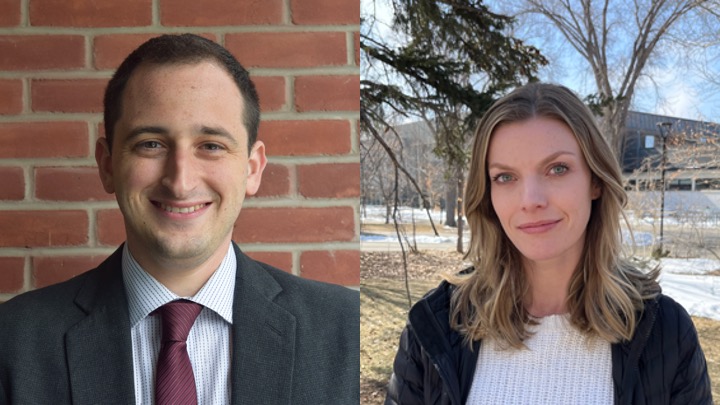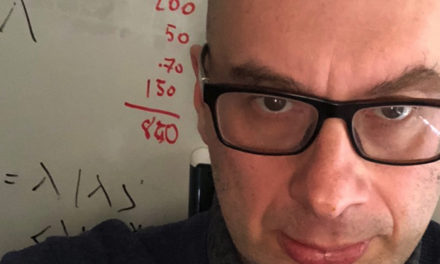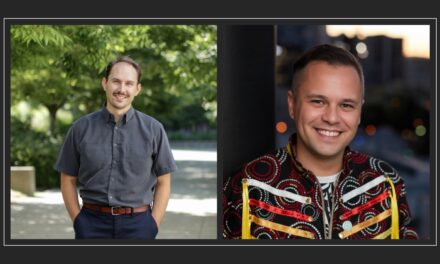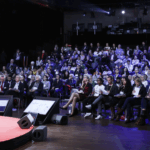2022 CAGS-ProQuest Distinguished Dissertation Award
Winner – Engineering, Medical Sciences and Natural Sciences Category
Dr. Stephanie Ross, Department of Biomedical Physiology and Kinesiology, Simon Fraser University
Supervisor: Dr. James Wakeling, Professor, Department of Biomedical Physiology and Kinesiology, Simon Fraser University
Dissertation: The Effects of Muscle Mass on Contractile Performance

Dr. Stephanie Ross, Department of Biomedical Physiology and Kinesiology (Simon Fraser University)
Dr. Stephanie Ross’ dissertation represents an outstanding contribution to the field of muscle biomechanics and comparative physiology. Bringing to bear a wide range of experimental, observational, and computational methods, Dr. Ross’ research addresses the understudied influence of muscle mass and inertia on the motions, forces, and energetics of contracting vertebrate muscle. In her dissertation, Dr. Ross pioneered a new line of experimental studies on human movement that sought to better understand the relationships between muscle contractions, mechanical work, and efficiency. Her pathbreaking findings led to the production of new and more accurate muscle models that provide insight into the fundamental mechanisms that underlie everyday muscle movements, and which open avenues for developing important tools for predicting surgical outcomes, designing nonsurgical treatment plans, and monitoring rehabilitation interventions for patients suffering from muscular diseases.
Dr. Ross has held several public-facing research positions during her career, including with the Fraser Health Authority and Simon Fraser University. In 2019 she was a Visiting Doctoral Researcher at the Concord Field Station, Harvard University, and from 2021-2022 she served as a postdoctoral researcher in the University of British Columbia’s Rehabilitation Research Program. Dr. Ross’ dissertation research was funded by an Alexander Graham Bell Canada Graduate Scholarship (NSERC), and has resulted in eleven refereed publications and eighteen conference presentations to national and international audiences. Dr. Ross is currently a Postdoctoral Scholar in the Human Performance Lab in the Faculty of Kinesiology at the University of Calgary, where her primary research focusses on muscle function changes in children with Cerebral Palsy.
“Don’t lose sight of the curiosity and fascination that drew you to your research in the first place. Your PhD is really the ideal time to learn, explore, take risks (and fail), and pursue questions that maybe no one else will care about, but that bring you a rush of excitement. As cliché as it is, I think there’s a lot of truth to the saying – ‘do what you love and success will follow.'” – Dr. Stephanie Ross
“Dr. Ross’ thesis work has a very wide-reaching scope…Our understanding of animal biology, the structure and function of muscles and animal bodies across species and sizes, and across both extant and extinct animals will be impacted by the fundamental insight Dr. Ross’ thesis has provided.” – Dr. James Wakeling (Simon Fraser University), PhD Supervisor
“This thesis represents an outstanding contribution to the field of muscle biomechanics and comparative physiology. It is a truly interdisciplinary thesis.” – Dr. Tom Daniel (University of Washington), External Examiner
Winner – Fine Arts, Humanities and Social Sciences Category
Dr. Zachary Witkower, Department of Psychology, University of British Columbia
Supervisor: Dr Jessica Tracy, Department of Psychology, University of British Columbia
Dissertation: The Action Unit Imposter: Head Position Influences Social Perceptions by Changing the Appearance of the Face

Dr. Zachary Witkower, Department of Psychology, University of British Columbia
Dr. Zachary Witkower’s dissertation represents a significant breakthrough in understanding how nonverbal behaviour conveys complex social information. Bringing together sixteen mixed-method, multinational, and interdisciplinary studies, his dissertation research demonstrates that head movements influence how people evaluate each other by changing the appearance of the face. By replicating these findings across diverse populations, including in a small-scale indigenous society in Central America, Dr. Witkower shows how head movements are a fundamental, universal, but commonly overlooked element of human communication. Dr. Witkower’s research carries substantial implications for the scientific understanding of emotion expression, nonverbal behaviour, and human evolution.
Dr. Witkower’s research has been published in nineteen peer-reviewed articles in top tier journals in his field, with nine more currently under review. He has delivered nearly two dozen presentations to national and international audiences at conferences and universities. Dr. Witkower is currently a postdoctoral researcher at the University of Toronto, where he studies fundamental questions about the emergence and utility of nonverbal behaviour for the communication of emotion, personality, and social status. In September he will begin as an Assistant Professor at the University of Amsterdam.
“I have 3 pieces of advice. First, hope for the best but prepare for the worst. Second, don’t make a habit of disagreeing with your data. Third, sometimes It’s important to go down a rabbit hole.” – Dr. Zachary Witkower
“Zak is the most productive, creative, motivated, and ambitious young researcher I have encountered at this stage in his career, and I have every expectation that he will become a real star in the field.” – Dr. Jessica T. Tracy (UBC), PhD Supervisor
“This work represents a near exhaustive and highly impressive programmatic set of studies.” – Dr. Reginald B. Adams (Pennsylvania State University), External Examiner
The CAGS-ProQuest Distinguished Dissertation Award recognizes Canadian doctoral dissertations that make unusually significant and original contributions, both to their respective academic communities and to Canadian society at large. The award was established in 1994 and is presented annually by CAGS, with sponsorship support provided by ProQuest. For the 2022 award season, eligible dissertations must have been completed and accepted by the graduate school between 1 January 2021 and 31 December 2021.
As expected, there were many extraordinary nominees for this award and the competition was extremely difficult to adjudicate. CAGS received twenty-six submissions from across Canada in each category, and these were assessed by two independent committees each consisting of nine expert judges. Both committees were unanimous in their decision and commended the exemplary dissertations produced by Dr. Witkower and Dr. Ross.
Dr. Witkower and Dr. Ross will each receive a cash prize of $1,500, a certificate of recognition, and an invitation to present at the 61st Annual CAGS Conference in November 2023. CAGS congratulates the winners for their tremendous accomplishments!











